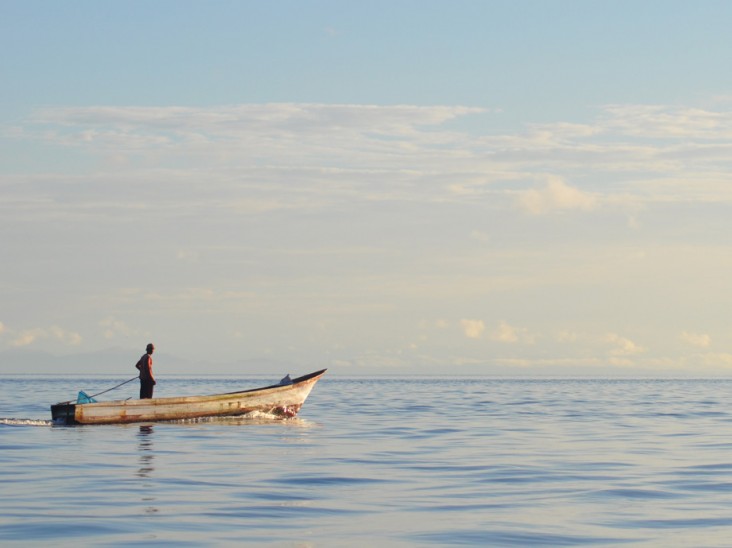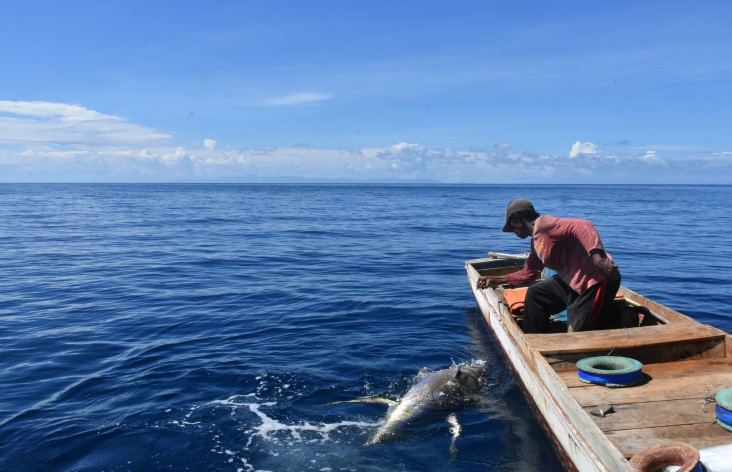You are viewing:
Archived Content
Information released online before January, 2021.
You are viewing:
Information released online before January, 2021.
Note: Content in this archive site is NOT UPDATED, and external links may not function. External links to other Internet sites should not be construed as an endorsement of the views contained therein.
You are entering the 2017-2020 Archive for the
United States Agency for International Development web site.
If you are looking for current information, visit www.usaid.gov.

By Tiffany Gibert, Masayu Vinanda, Mohammad Syifa, and Indah Rufiati
Like most people in Madapolo village in Indonesia, Sarno Lajiwa fishes for a living. He wakes at 5 a.m. to prepare for work, making sure to bring an ice box to better preserve the freshness of his catch.
“This is what I learned at the fair trade training,” he said. “We were introduced to some practical tips for maintaining fish quality. As our fish quality improves, the price goes higher.”
Sarno leads the Tuna Jaya Fishers’ Association, a group of 20 fishers participating in a USAID program that advances fair trade in Indonesia. In North Maluku and Maluku provinces, USAID encourages sustainable marine management and is introducing new income opportunities that allow people to move toward improved, long-term stewardship of their fisheries.
At the heart of Southeast Asia’s Coral Triangle, Indonesia’s rich marine resources provide food and critical dietary nutrition to millions. But in recent years, the demand for fish and other marine goods has surpassed supply, becoming unsustainable.

With over-exploited and declining fisheries, many small-scale fishers in Indonesia now have to travel farther for their catches, and their incomes have fallen as fish stocks decline.
In fishing communities like Sarno’s, USAID partners with fishers and local organizations to foster self-reliance by improving economic and environmental sustainability. Our facilitation of fair trade certification exemplifies our commitment to sound stewardship of natural resources.
Comment
Make a general inquiry or suggest an improvement.